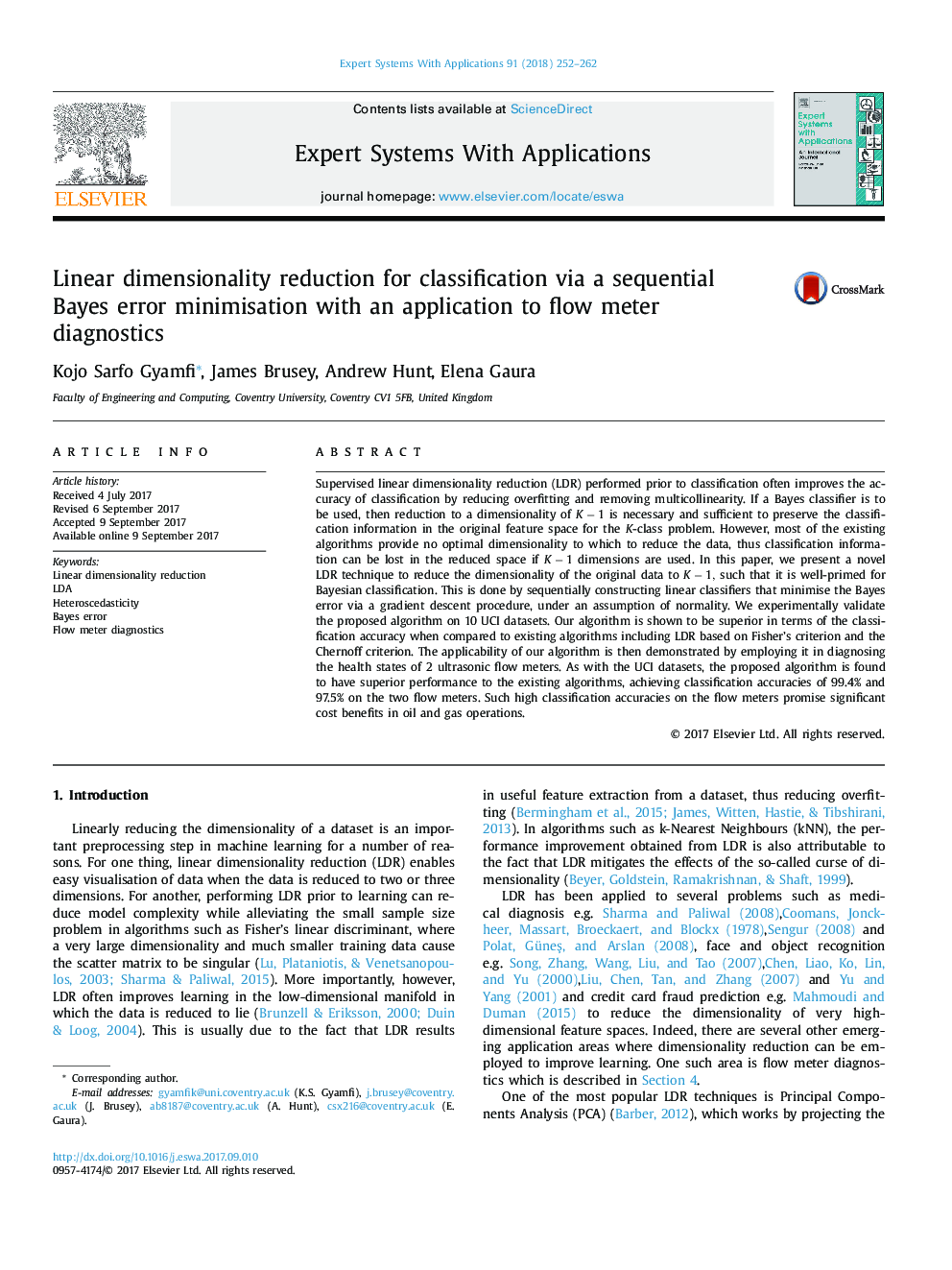| Article ID | Journal | Published Year | Pages | File Type |
|---|---|---|---|---|
| 4942931 | Expert Systems with Applications | 2018 | 11 Pages |
â¢We propose a supervised linear dimensionality reduction algorithm.â¢The algorithm reduces the dimensionality of data to Kâ1 for the K-class problem.â¢The linearly reduced data is well-suited for Bayesian classification.â¢Experiments on UCI datasets are performed for the proposed and existing algorithms.â¢The applicability of the algorithm to flow meter diagnostics is also demonstrated.
Supervised linear dimensionality reduction (LDR) performed prior to classification often improves the accuracy of classification by reducing overfitting and removing multicollinearity. If a Bayes classifier is to be used, then reduction to a dimensionality of Kâ1 is necessary and sufficient to preserve the classification information in the original feature space for the K-class problem. However, most of the existing algorithms provide no optimal dimensionality to which to reduce the data, thus classification information can be lost in the reduced space if Kâ1 dimensions are used. In this paper, we present a novel LDR technique to reduce the dimensionality of the original data to Kâ1, such that it is well-primed for Bayesian classification. This is done by sequentially constructing linear classifiers that minimise the Bayes error via a gradient descent procedure, under an assumption of normality. We experimentally validate the proposed algorithm on 10 UCI datasets. Our algorithm is shown to be superior in terms of the classification accuracy when compared to existing algorithms including LDR based on Fisher's criterion and the Chernoff criterion. The applicability of our algorithm is then demonstrated by employing it in diagnosing the health states of 2 ultrasonic flow meters. As with the UCI datasets, the proposed algorithm is found to have superior performance to the existing algorithms, achieving classification accuracies of 99.4% and 97.5% on the two flow meters. Such high classification accuracies on the flow meters promise significant cost benefits in oil and gas operations.
